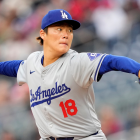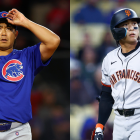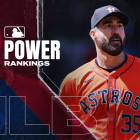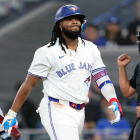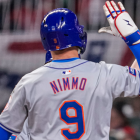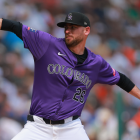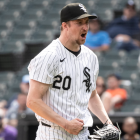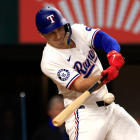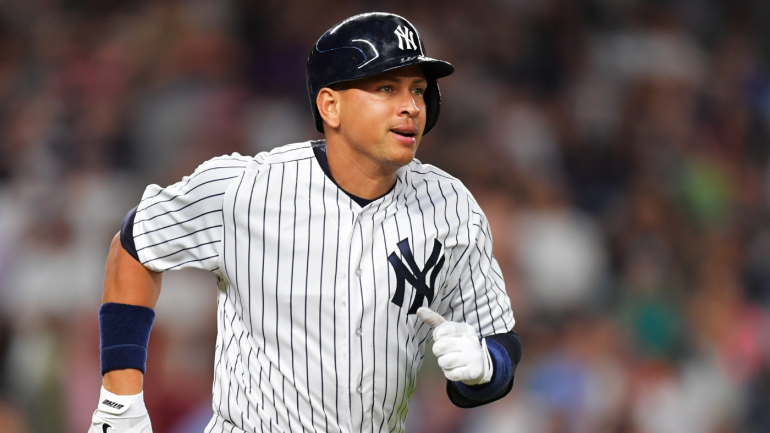
The results of the 2024 Baseball Hall of Fame vote are now known, with Jim Leyland having been elected by the Contemporary Baseball Era committee and the BBWAA selecting Adrián Beltré, Todd Helton and Joe Mauer. We've discussed the inductees enough in other places and will again in July when the Hall of Fame induction ceremony transpires. Here, I'm going to dive into the rest of the voting results.
Wagner is one year away
That subheading there works in two ways. Billy Wagner is likely just one year away from making it into Cooperstown, as he got 73.8% of the vote this time around (with 75% needed to make the Hall of Fame) and history tells us that nearly every time that means the player gets in the next year. Of course, it is also Wagner's 10th year on the ballot, so he'd better make it. The 2025 ballot will be Wagner's last, whether he gets in or not.
I expanded on how strongly history is with Wagner here.
A-Rod and Manny look cooked
This was Manny Ramírez's eighth year on the ballot and he got 32.5% of the vote after getting 33.2% last year. With his two PED suspensions measured against the fates of players like Barry Bonds and Roger Clemens, there just isn't any realistic way for Ramírez to get even close to induction. He won't even get to 40% of the vote, in all likelihood, let alone a majority, and certainly won't get to 75%.
I knew Alex Rodriguez wouldn't come close in his first year on the ballot and figured he wouldn't gain a ton of traction in his second, but it seems like his status was cemented with this vote. He's gone from 34.3% to 35.7% to 34.8%. Yep, not only is he without momentum, but he actually went backward in Year 3. The voting body is always evolving to a younger group, but that's a really gradual moment and he only has a maximum of seven years left. To already see a dip before reaching even 36% sure seems like a death knell for his chances.
I could be wrong on A-Rod. Seven years is a long time and who knows what could happen in there that might change the views of those open to having their minds changed. He does have one of the, say, 10-15 best statistical ledgers in MLB history. Maybe he starts gaining momentum next year or the year after, though it doesn't seem possible right now.
I'm not wrong on Manny, though. He's done.
Jones, Beltrán with gains, look to avoid plateau
Andruw Jones jumped from 58.1% to 61.6%. It's a gain, albeit a modest one. The pro-Jones camp would've loved to see more of a leap forward here in his seventh year on the ballot. A good number of candidates who get to this range with at least three years of cushion left end up in the Hall of Fame, but there's always the possibility of hitting a voting plateau. There's generally a portion of the voting bloc firmly set on a yes or no with a player, leaving a certain percentage open to changing their minds. We'll see the needle move a bit, but at some point the firm "no" people hold steady and that's it. For Jones, will it come before he hits 75%? Next year is a big one for him.
Carlos Beltrán saw more than modest gains, going from 46.5% in his first year to 57.1% in his second. I predicted there would be a segment of the voters who wanted to punish Beltrán for his involvement in the 2017 Astros' sign-stealing scandal by simply not voting for him on the first ballot. Of course, there will be those who want to punish him by never voting for him and, again, there's always the chance he runs into a wall before getting to that high bar that is a 75% threshold.
I mentioned above the evolution of the voting body and Beltrán has eight years, if he needs it, for a nudge toward a more accommodating electorate. They say "time heals all wounds" and while that isn't actually true, it might just be true enough for Beltrán. Time will tell. If a Beltrán fan asked me how it'll go down, I'd say to be cautiously optimistic that he makes it via the BBWAA vote, eventually.
As for Jones, probably a little less optimism, but similar sentiment.
Utley with decent first showing
Chase Utley was polling (via Ryan Thibodaux's Ballot Tracker) around 40% and while many candidates fall off a bit between publicly-known and private ballots, Utley ended up officially clocking in at 28.8% of the vote here on his first ballot.
It's tough to know what to make of that. We've seen recent inductees like Larry Walker, Scott Rolen and now Todd Helton start well below 30% and end up in the Hall. Rolen and Helton rose remarkably fast, too. We've also seen plenty of candidates start in the 20s and never make it to Cooperstown.
Even if I disagree with the line of thinking, there are still a good number of voters who hold "first-ballot" Hall of Fame status to a higher standard than anyone making it second ballot or later. That means that it's possible voters didn't vote for Utley simply because it was his first time on the ballot and they didn't view him as an inner-circle, all-time great.
It took Ryne Sandberg three ballots to get in, though he debuted at 49.2%. It took Craig Biggio three ballots too, though he debuted all the way up at 68.2%.
Something to watch for next year: Contemporary second basemen Dustin Pedroia and Ian Kinsler both debut on the ballot. They have inferior resumes to Utley. Will their presence on the ballot help Utley, as people compare the second basemen to each other?
It's possible. It's also probable there's a second-year jump. Next year is a huge one for Utley's candidacy. I'd be optimistic if he sees his vote percentage push up to around 40. Anything over that is gravy.
Wright survives
The group of first-year candidates this year had two surefire Hall of Famers in Beltré and Mauer, one who was sure to garner a lot of argument and remain on the ballot for a while in Utley and eight obvious one-and-dones. Then there was David Wright. I went through his case and came up short. I figured there was a decent chance he'd be lopped off the ballot by failing to get 5% of the vote. He ended up getting 24 votes, which was good for 6.2%, so he sticks around.
I'm not sure he can ever get all the way to 75%, but this is a start. He's got a chance.
Rollins, Hunter with modest gains
Torii Hunter just keeps hanging on. In his fourth year on the ballot, he got 7.3% of the vote, up from 6.9% last year. There still isn't much momentum, but the gain is notable after sitting close to being five percented his second year (5.3% in 2022).
Jimmy Rollins might actually have some momentum, though. It was his third year on the ballot and he's gone from 9.4% to 12.9% to 14.8%. He still hasn't seen a big jump, but upward movement is always a plus. If looking for inspiration from a fellow former Philly infielder, Rolen went from 17.2% to 76.3 in four voting cycles. Rollins has seven chances left, assuming he doesn't dip below 5%.
Five sub-20% players lost votes
- In his seventh year on the ballot, Omar Vizquel went from 19.5% to 17.7%, which is a new low for him. It's hard to see him moving back above 25%, much less getting close to making it in the Hall of Fame.
- In his sixth year, Andy Pettitte dropped from 17% to 13.5%. His chances of rising are better than Vizquel's, but I'd say the proverbial writing is on the wall by now.
- In his fifth year, Bobby Abreu fell from 15.4% to 14.8%. I thought there was a chance he'd be one of those internet darlings who grew in popularity by year; instead, his wall seems to have been hit in the mid-teens.
- In his fourth year, Mark Buehrle dipped to 8.3% from 10.8%. It seems more likely he'll fall off the ballot than make a strong run toward enshrinement.
- In his second year, Francisco Rodríguez fell from 10.8% to 7.8%. I have wondered if the increased push for Wagner (6th all-time in saves) would help give a bump to K-Rod (4th), but thus far it doesn't appear to be the case. He's not too far from falling off the ballot.
Farewell, Mr. Sheffield
This was the 10th year on the ballot for all-time great slugger Gary Sheffield, who simply couldn't overcome his PED ties and/or shoddy defense with enough of the electorate. In many walks of life, the voting body collectively showed Sheffield plenty of love. After all, how often does a group of people vote 63.9% in favor of someone only to have the answer to the question about that someone be "nope." That's how it goes in Hall of Fame votes, though, as 75% yes votes are needed.
Sheffield is now among the players with the 10 highest percentages to not get to 75 in their final year.














